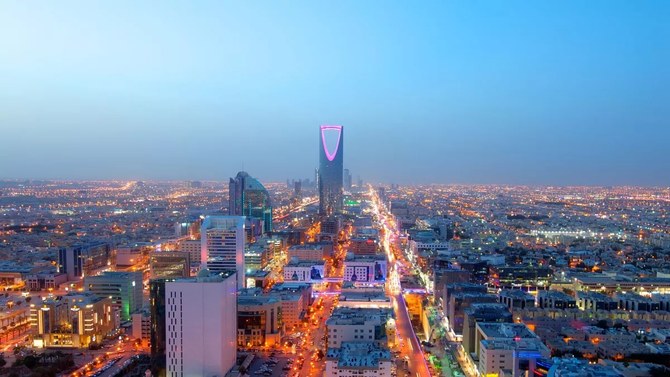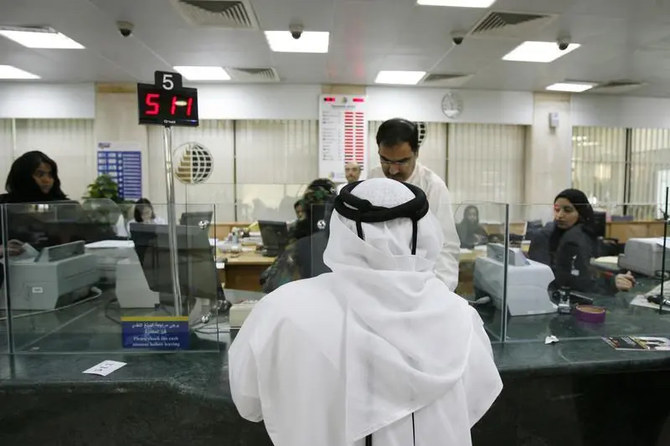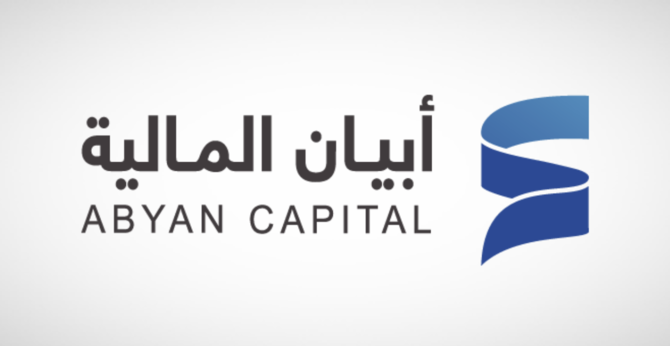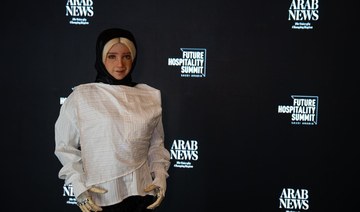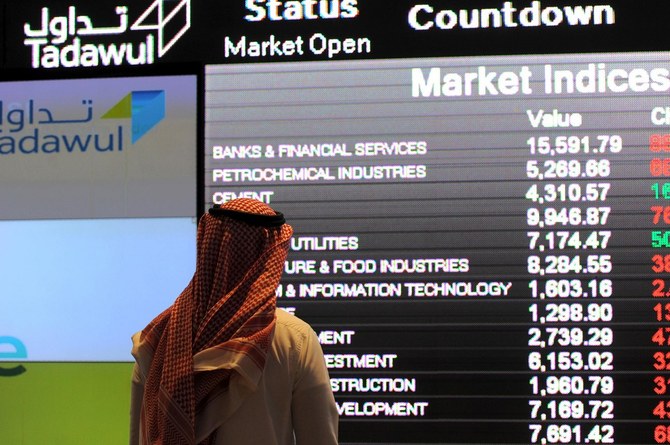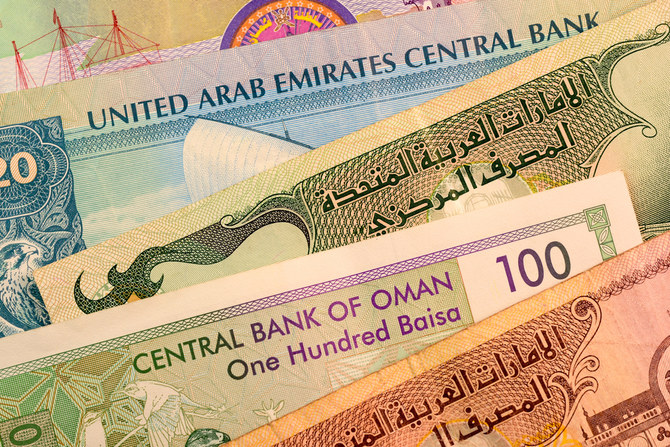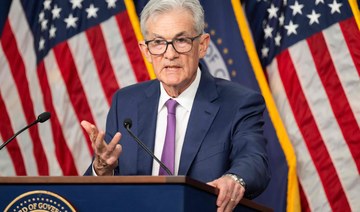These are undoubtedly challenging times, but Richard Attias, the man behind Saudi Arabia’s “Davos in the desert,” is up for the task: Organizing this year’s Future Investment Initiative (FII) in the time of coronavirus.
The FII will go ahead this year on Oct. 28-29 despite the challenge of having thousands of attendees in one place during a pandemic.
“As of today, it is physical,” the founder of global communications advisory firm Richard Attias & Associates told Arab News in an exclusive interview, from Paris. “I think virtual events are OK, but it’s not, to be honest, the best way to definitely do business together. It is not the best way to talk about big investments. You cannot make deals of billions of dollars and investment of billions of dollars just through virtual conversation.”
More than 70 international speakers have confirmed their attendance at the forum in Riyadh from Oct. 28-29, and more than 1,200 international delegates have registered for it. “This shows you, number one, the optimism that people want to have. People want to be back together. It’s very important,” Attias said.
“People are quite frustrated to be obliged to be locked down or to not travel anymore. I think we want to be a live community and not just the virtual community in our society. I really hope and wish beyond the business that we’ll be 100 percent physical. And I hope that by the end of October we will not be facing more challenges in terms of health.”
But even if that’s the case, Attias is no stranger to risk management. “We have amazing risk management plans,” Attias said. “We predict all the different possibilities in terms of logistics. We have a fantastic team dealing on everything related to security, to health care, and of course, to transportation, accommodation. We have plans for everything.”
“Even when the time is good, you need always to think about Plan B, Plan C and even Plan D. This is part of our job. So, we are ready to go anytime. And we love being sometimes called like the Mission Impossible people or the Mission Impossible team, not to be too pretentious.”
With the success of the previous three FII events, the non-profit FII Institute was created a few months ago by royal decree, and Attias is its CEO. “It helped us to be more and more in touch with different stakeholders and different global CEOs,” he explained. “And I only hear very positive feedback. The business community is looking in a very positive way to the Kingdom and definitely the Chinese, Americans, Europeans, and even Africans want to come to the Kingdom and to see what they can do in the Kingdom and with the Kingdom,” he said.
One of the reasons FII was created in Riyadh was to bring Saudi Arabia into the global conversation as a key player in the global economy, situated between the emerging economies of Eastern Africa, West Asia and the Silk Road. “If you look at how the economy is shifting today between West and East, the Kingdom of Saudi Arabia is very well located,” Attias said.
BIO
BORN: Fes, Morocco, 1959.
EDUCATION
- Institut national des sciences appliquées de Toulouse.
-
Masters in mathematics and physics, Paris University.
CAREER
- Chairman, Publicis Events Worldwide.
-
Chairman, the Advisory Board of the Center on Capitalism and Society.
-
Founder, The New York Forum.
-
Founder, Richard Attias & Associates.
Attias said key global players in the financial field know that it is important to have a good understanding of public-private partnerships, where and how you should invest to have an impact, and how to help young entrepreneurs. “This is why FII was created. And it was created under the vision of his royal highness, the Crown Prince Mohammed bin Salman. I’ll be very frank, you know, it was his vision. And in total modesty, I brought my little expertise and experience on how to create great platforms which could have a positive impact.”
Sanabil Investments, a subsidiary of the Public Investment Fund (PIF), acquired 49 percent of RAA last year, Attias explained, “to build together a champion, not only in the Kingdom, not only in the region, but a company who could become a global champion in the field of strategy, communication and events. This is how things were born.”
Attias spoke to Arab News about the mission of the evolving partnership. “First of all, our vision is to empower governments and I would say corporations, to really build their influence and to have to drive their impact. This is our vision. Our vision is really to support these governments and cooperation on that.”
Accelerating external growth is on his agenda, but it takes time to train and recruit teams. “We have now a great team in Saudi Arabia with more than 20 permanent staff that is growing,” Attias said. “This is something that we were achieving only in the past few months, during the COVID-19. And I’m very happy to have my colleague Rakan Tarabzoni as a CEO of Richard Attias & Associates Saudi Arabia, and under his leadership we will be growing definitely in the Kingdom.”
While Attias has a civil engineering background, he was drawn into the field of communications 30 years ago by following his passion: Bringing people together face-to-face to solve conflicts. “I decided, instead of building bridges as a senior engineer, to build bridges between people and to build bridges between countries and to build bridges between public and private sectors,” Attias said. “And this is something you can do when you are in the field of communication strategy and creating platforms and being a catalyst.”
Attias saw potential in Saudi Arabia 20 years ago, long before FII. “I’m not in Saudi Arabia by coincidence,” he said. “In fact, the Kingdom of Saudi Arabia chose our company almost 20 years ago, when I was wearing my older hat as the founder and the CEO of Publicis Events Worldwide. It was the first time that SAGIA (the Saudi Arabian General Investment Authority) was considering to organize and to host an international business conference, the Global Competitiveness Forum (GCF), which I started in Riyadh years ago.”
Through eight editions of the GCF, he discovered not only the Kingdom of Saudi Arabia but also its main asset: Its people and their vibrancy. “You know, at that time I was not calling that the vibrant society, but when I read the Vision 2030, I fully understand why this vibrant society was mentioned because it is what you are, full of young talents, very smart, very well educated and very open to the world.”
This is what pushed him to encourage his team at RAA to find opportunities in Saudi Arabia: “Because you have the audience, you have the good infrastructures, you have the right people and the right skills. And now you have a fantastic vision, which is his majesty’s vision and his royal highness the crown prince’s vision. The question now is to implement and to implement quickly because time is flying and to implement correctly with the right teams and the right people.”
Saudi Arabia has golden opportunities to offer through Vision 2030, Attias said.
“It’s a land full of intelligence and it’s a land full of energy. In fact, it is a kingdom of energy. We always talk about the Kingdom of Saudi Arabia, about the kingdom of oil, the kingdom of energy, with a big E the energy of the people, the energy of the teams and the energy of the Saudi society. To be honest, this is what is inspiring and what is exciting and what is making all our teams very happy to be as often as possible in the Kingdom to produce what we have to produce.”
Despite all the major reforms, progress and advances Saudi Arabia has made during the past few years, the Kingdom has received some negative press and been the targets of some boycotts, but Attias has other thoughts. “You should look at the Kingdom of Saudi Arabia as a land of opportunity for investment and as a land of opportunity for being the catalyst of great projects where multiple joint ventures could happen.”
He added: “I would like to remind the businessmen that the Kingdom of Saudi Arabia is hosting the G20 this year, the first time that an Arab country will host the G20. The Kingdom of Saudi Arabia will host B20 by definition, which is the group of businessmen from the 20 countries.”
Despite the COVID-19 pandemic, the company continues to thrive thanks to the shareholders, and Attias is confident about the future.
“The world will be having still a lot of opportunities, and the Kingdom of Saudi Arabia will be one of these driving countries in this industry,” he said.






